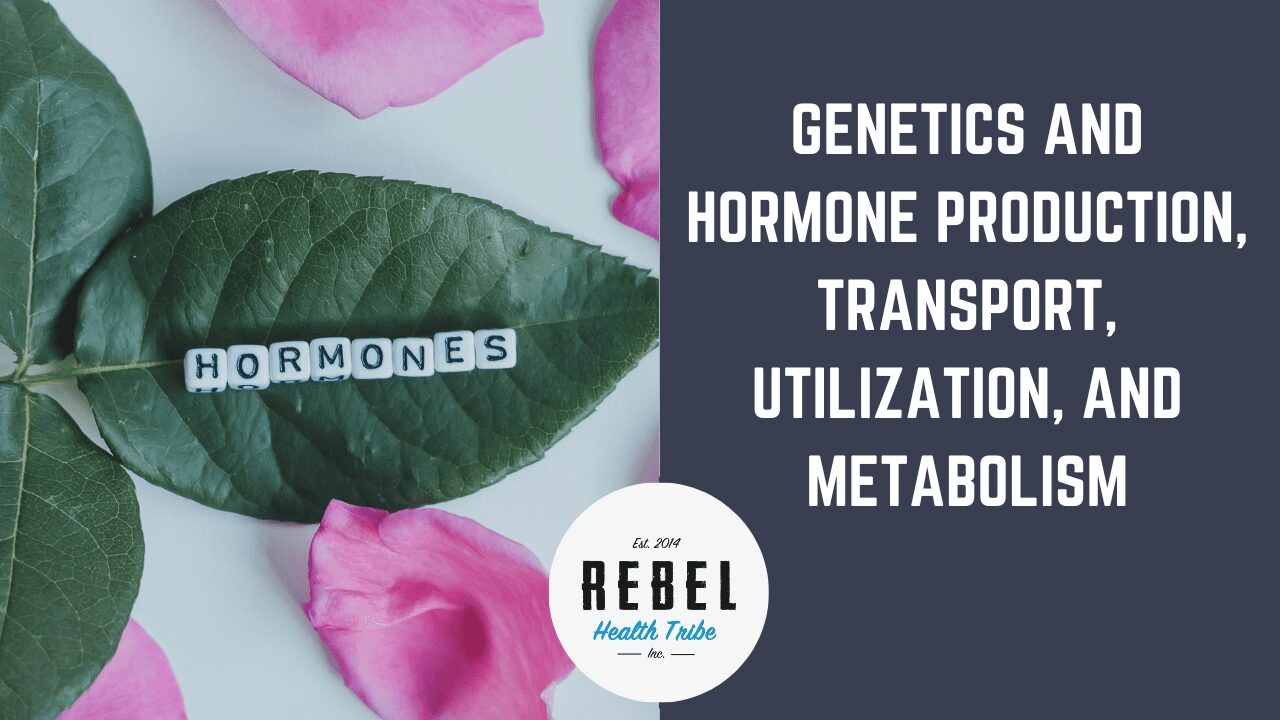
Genetics and Hormone Production, Transport, Utilization, and Metabolism
Our genetics play a larger role in our hormones than most people
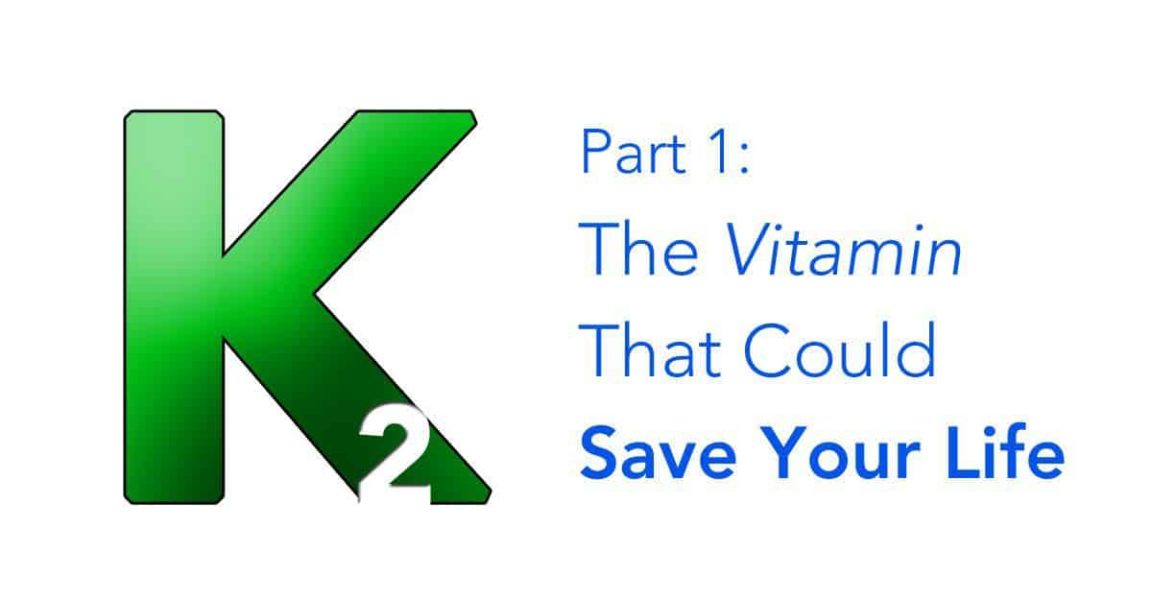

Our genetics play a larger role in our hormones than most people
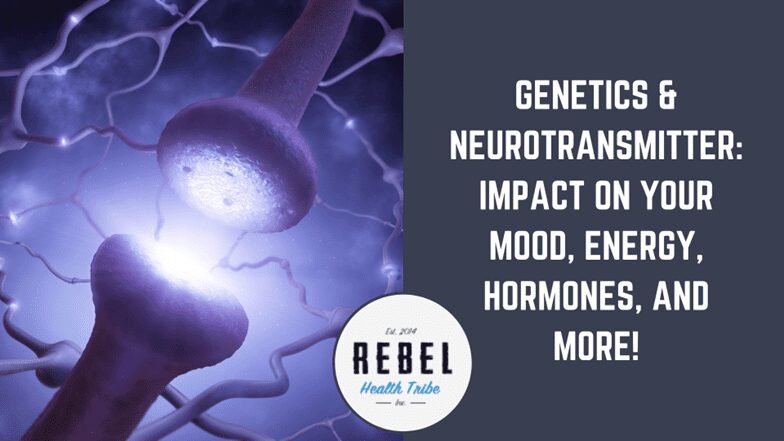
Have you wondered why an antidepressant didn’t work for you? Have you
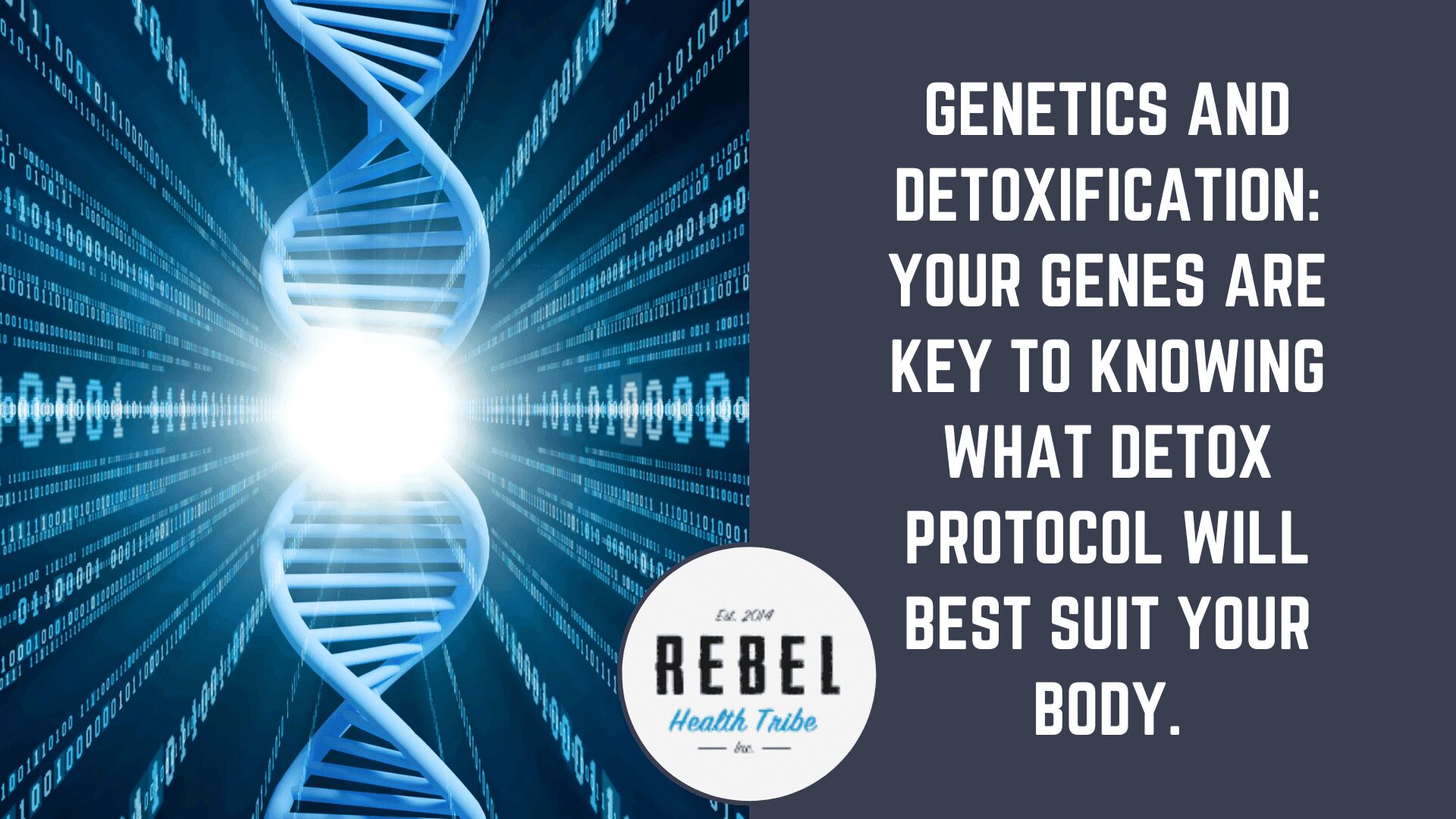
https://vimeo.com/821487331 If you’ve ever bought a detox kit off a shelf

Optimization Guide
Is that a bold statement? Yes. Is it true that a vitamin can literally save your life? Absolutely.
In this series, we’ll be discussing the rapidly-growing body of research around this little-known vitamin. We’ll talk about how K2 can have tremendous health benefits for cardiovascular, bones, brain, skin and even certain types of cancer.
If you’d like to learn more about Vitamin K2 and why it’s so important, Read This Article.
Want to learn more about the only complete-dose K2 Supplement with essential co-factors?
Transcript
Michael: Hey everyone, welcome to our Rebel Health Tribe interview with Kiran Krishnan. Kiran is the chief science officer at Physician’s Exclusive and microbiologist by trade and has a lot of experience in the nutritional supplement and food industries. A lot of you guys probably already know Kiran from our very popular microbiome webinar series and a couple other contributions on the site. And he’s one of the formulators of Megaspore Biotic which is the probiotic supplement that we’ve been using and seeing awesome results with for well over a year now. So Kiran thanks for joining us.
Kiran: Yeah you’re welcome, great to be back… Great to be hanging out with the tribe.
Michael: For those who don’t know you, do you wanna give just a little bit of your own story and how you got to be doing what you’re doing.
Kiran: Sure yeah. I started out, obviously to my academic trainings in microbiology, in biochemistry as well. I did a lot of my research work in molecular medicine as what they would call… But one of my passions that I realized early on was the ability to take natural compounds and natural treatment and give them the scientific validation that’s required from the pharmaceutical type of industry. So I wanted to be able to utilize natural safe, effective compounds in a pharmaceutical manner so they had the scientific validity, it had the substantiation to actually pass through FDA amongst other things. So taking nutrients to a semi-drug or medical food level was what I had started working on in the nutritional industry. So for that, we opened up a clinical research organization, so I’ve been involved in designing, running a lot of human clinical trials, working with many different nutrients and different products… And then we got into manufacturing certain nutrients that we are taking to different levels of the pharmaceutical industry as well, including the spores that we work with in Megaspore Biotic. We do a lot of research, a lot of science, a lot of focus on the regulatory and we’re always studying what’s happening out there in the nutritional world.
Michael: Awesome. And we’ve talked to you about the spores quite a bit and microbiome related stuff. We’re gonna switch gears a little bit today and talk about vitamin K2. People might think like… “Why are they talking about vitamin K2?” Honestly up until about 2 years, 3 years ago, K2 wasn’t something I really heard mentioned or vitamin K at all, even in the functional medicine nutrition world. I remember I had a client years ago, maybe 5 or 6 years ago who was on Coumadin like blood thinners, he couldn’t have vitamin K. I had to look up what vitamin K was in so that he couldn’t eat any of it and it was like leafy greens and things but I think that’s a different form of vitamin K than we’re gonna be talking about. So we’re gonna talk about K2 which I’m assuming implies that there’s a K1. If you could just go over a very quick overview of what is vitamin K1, what is K2, and what’s the difference. That would be awesome.
Kiran: Yeah and there was a great book written about vitamin K2 a couple of years ago by a naturopathic physician of Canada and I think she titled it “The Little Known Vitamin that Can Save Your Life.” And that’s the beauty of vitamin K2, that people don’t know a whole lot about it, but the power of what it does to the body and the significance of what it does in the body is almost unparalleled in the vitamin world even. So K1 is the vitamin version of vitamin K that you’ll see in most multivitamins today. So if you went to the store and you bought a Bayer One-A-Day or one of those Flintstones Vitamins. Any one of the multivitamins. You see a vitamin K in there, that’s K1. K1 is called phylloquinone. K1 comes from leafy green vegetables. That’s the major source of it. And K1 functions almost exclusively in the liver itself. So it’s not extrahepatic. The word extrahepatic means outside the liver. So what happens when you ingest K1 is, it’s grabbed in the intestines by a very specific transport system, taken through the portal system directly into the liver and it functions purely in the liver. Now the major role of K1 is for blood coagulation. So if you’re looking at forming a blood clot if you get a cut or whatever abrasion, there’s a whole series of steps that happens with thrombin and all different proteins. There’s dozens of proteins. K1 functions in activating some of those proteins so K1 is necessary for forming blood clots. And of course the formation of blood clots is a very important function to human survival because if not a simple bump, bruise… A simple bump on the side of the desk could cause somebody to bleed out. So that’s why K1 is sequestered within the liver and used exclusively for that mechanism. So now when you have someone on Coumadin, which is an anticoagulant, because they clock too much, that’s why doctors say don’t take K1 or don’t eat leafy greens. That’s where you get that contraindication from. K2 on the other hand is called menaquinone. It’s a totally different version of it. I mean they look very similar, but there’s a lot of differences in the molecular structure. K2 when it’s absorbed in the body goes to the liver as well, but then it’s quickly sent out of the liver into the rest of the peripheral tissue. So we call K2 the extrahepatic version of vitamin K. So K2 is found in basically every tissue in the body, and most interestingly enough it’s found in the highest concentrations of the brain. And our body has a very specific transport system for getting K2 to the brain. So K2 in nature comes from fermented cheeses. So in Northern Europe they have certain types of fermented cheeses that have a high level of vitamin K2. The Japanese fermented food natto contains the highest natural source of vitamin K2. And other than that you get some K2 from some grass-fed butter, but the amounts are not therapeutic enough in my opinion and based on the research, and then also you get it from organ meat. So back in the day as hunters and gatherers we used to eat organ meat all the time and some people of certain cultures do still eat organ meat and that’s where they get the primary K2-7 from. But nowadays of course we don’t consume organ meats, we don’t consume those kind of fermented cheeses anymore and so we end up becoming quite deficient in K2-7 specifically.
Michael: You mentioned K2-7… That implies there’s another K2-something.
Kiran: Yeah so K2 is interesting. So the numbers next to it, the 7 is the length of the side chain, so it’s how many carboxyl groups it has on the side chain. They is a K2-9, which has 9 groups of the side chain, there’s K2-8 that has 8, there’s K2-4 which has 4. Now K2-4 is a form that your body can take K2-7 and work the floor to utilize it in different manners. That’s why when you eat actually organ meat you actually find more K2-4 in it than K2-7 because the animal’s body has converted the K2-7 to K2-4. But in terms of nature, in terms of the most bio-available, the most stable, the one with the highest half-life K2-7, seems to have the optimum amount of stability, bioavailability, and the optimum way of increasing K2 concentrations in all of your peripheral tissue.
Michael: Okay. So in nutrient breakdown supplement form example if you’re gonna go for one other K2’s, the 7 is the most effective.
Kiran: 7 is the most effective, if you see K2-4, there is no natural storage of K2-4 as there is in terms of extraction. So any K2-4 is actually synthetic that is sold in the market. In fact, K2-4 is a synthetic prescription drug in Japan. It’s one of the number one treatments for osteoporosis. They use K2-7 as well, but any K2-4 found in a supplement is gonna be a synthetic version, which I’m always in favor of using the natural version than synthetic.
Michael: You mentioned it’s used as a drug for osteoporosis. What is K2’s function in regards to bone health?
Kiran: K2, in general, is a very interesting vitamin. It’s an activator if you will. Its main function is called carboxylation, that’s the type of chemistry that it does. So they’re basically a number of proteins that are made by your body that have very very very critical functions. But these proteins are excreted in inactive form. They don’t do anything until K2 comes along and activates them or carboxylates them. Now they’ve identified over a dozen proteins in the body that are vitamin K2 dependent proteins, meaning they don’t do their function unless they’re activated by vitamin K2, by the presence of vitamin K2. So in terms of bone health, one of the most important ones, there’s a protein called osteocalcin. Osteocalcin is a protein who’s responsible for taking calcium out of the circulatory systems, serum blood, and actually putting the calcium on bone. So it actually sticks the calcium on the bone and creates the bone matrix that you tend to see that gives bone its rigidity and yet its ability to be very lightweight. So the honeycomb structure. So without K2, osteocalcin cannot function. Now vitamin D for example has become very popular as a bone health product as well. The reason why vitamin D is important for bones is vitamin D causes your cells, called osteoblastic cells, which are the cells that build bone to release osteocalcin. So vitamin D is very important in that regard. Without enough vitamin D you’re not releasing the osteocalcin. But the osteocalcium again is released in inactive forms. So if K2 is not there to activate it, it’s just sitting around, you’re not building bone. So that becomes very important. So in order to actually build bone to improve brittle bone syndrome or people who are suffering from osteopenia, osteoporosis, these are all conditions where you have bone loss and chronic bone loss which happens basically after the age of 30. Everybody basically just starts losing bone, you don’t rebuild much of your bone. You need the vitamin K2 there in order to take the calcium and things from coming in from diet and actually putting it on the bone.
Michael: So what if you take a whole bunch of vitamin D without K2 which is something that’s been prescribed now even in the natural and alternative health world for quite some time. I’ve had clients put on as high as like 40,000 IUs. What if you take a bunch of vitamin D and release a ton of that and you don’t have K2. Can taking a bunch of vitamin D on its own become problematic?
Kiran: Yeah absolutely, there’s a condition called hypervitaminosis D. That is basically vitamin D toxicity. And when you look at the clinical pathology of what vitamin D toxicity looks like, it is exactly the same as vitamin K2 deficiency. So what happens is when you take a lot of vitamin D without K2, you are causing the release of a lot of osteocalcin, and other vitamin K dependent proteins as well, and you’re using up your bodies’ any storage, or any amount of vitamin K2 that your body has. Now once you’ve used up your vitamin K2 and you’ve depleted it down to a clinically deficient level, you start to get calcification in all the areas where you don’t want. So calcium starts to settle in on your soft tissues in your arteries, in your tendons and even in your skin and your subdermal layers. So you start to get hypercalcification everywhere. So when you look at vitamin D toxicity, vitamin D toxicity is characterized by hypercalcification in the body. And that’s the same thing as vitamin K2 deficiency. So what you’re doing when you take a whole bunch of vitamin D without taking K2 you’re causing more calcification at the end of the day than causing benefit.
Michael: Wow that’s crazy. What would be some symptoms of this over-calcification that might arise from that?
Kiran: So some of the noticeable things that people would see is things like increasing wrinkling, low energy status, brittle nails, brittle hair… Those are things that people might notice. But you’ll see changes in skin tone, skin color… But from a more scary and psychological standpoint, you get hardening of the arteries. Because you’re basically building calcium plaques in the arteries. So what happens is… (And this actually will segue into why vitamin K2 is so important for heart health as well.) So vitamin K2 activates a very important protein called MGP. MGP stands for Matrix Glob Protein. MGP’s sole job is to remove calcium from arteries and veins. Because when you take in calcium, calcium is just an inert compound, it’s just metal, it’s just flowing around in the body calcium doesn’t do anything on its own, it requires other actions from your body to put the calcium in the right place and form bones and things like that. So when you take calcium you got a lot of calcium circling around in your circulatory system. If the calcium is not being utilized properly it basically starts settling in in your soft tissue. And MGP’s role, which is required activation by K2, is to take calcium that’s settling in your arteries and remove it. And what you find is when you have a deficiency in vitamin K2, and you start developing calcified plaques in the arteries, you actually find that it’s not just a plaque, you’re actually building bone in the arteries.
Michael: That’s not good.
Kiran: Yeah, it’s actually the osteoclastic activity, which means your arteries are turning into bones. You actually can see the honeycomb structure of your bone building in the lining of the arteries. And it’s MGP as a responsibility for preventing that from happening and MGP is vitamin K2 dependent. And this is why vitamin K2 becomes so important for our heart health. And this was demonstrated in a number of studies, but one of the biggest ones was something called a Rotterdam study. It’s a 4,800 patient study over 10 years. So they followed 4,800 patients in Rotterdam over a 10 year period and they divided them into groups of people that did not consume any K2 at all or people that consumed even minimal levels of K2. So if in the group that consumed even minimal levels of K2, they had over 50% less cardiovascular mortality. So cardiovascular mortality was cut in half just by consuming a small amount of K2. And that’s profound. I mean there’s nothing out there in the market today whether pharmaceutical, surgical, or anything that can reduce your risk of cardiovascular mortality in half. So that’s why K2 becomes extremely important now for heart health as well. So the other problem with taking too much D without K2 is you’re putting your heart and arteries in danger as well. Another study is that calcium plays a role in that as well and people take a lot of calcium. Everyone’s doctor is gonna tell them take 1,000 mg of calcium a day. When we get actually a quite a bit of calcium and most in foods we eat, so we really don’t need the supplement calcium much. But a study out of the British Journal of Medicine that was a multi-year study published in 2012, showed that in postmenopausal and perimenopausal women, who are taking calcium as a supplement, which is a target group for calcium supplementation, for every one incidence of osteoporosis that it helps, creates 2 cases of heart disease. So it almost doubles your chance of developing heart disease as a perimenopausal or postmenopausal woman. You’re taking calcium as supplementation without vitamin K2, and without D3 and other supportive ingredients as well. So it becomes extremely important for those 2 areas.
Optimization Guide
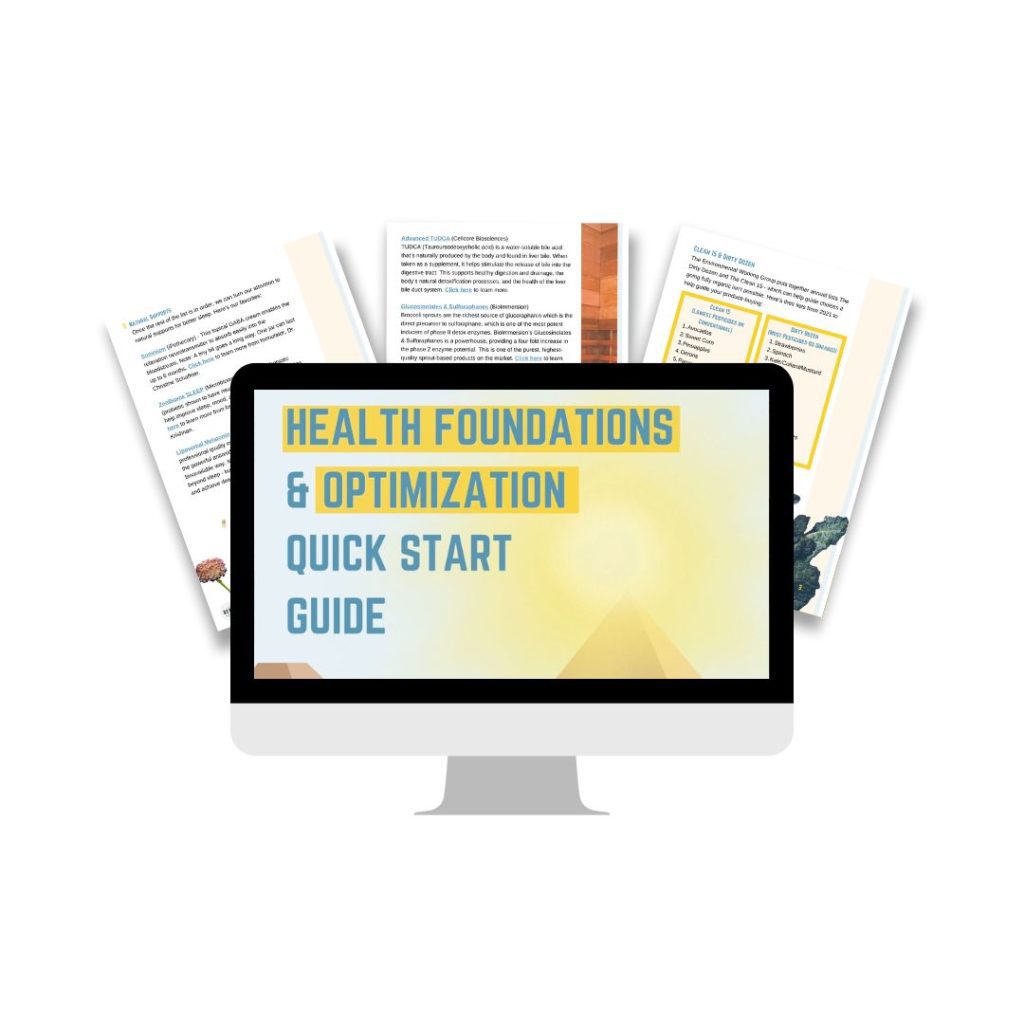
An Exclusive Course with 10 Years of Microbiome Knowledge Build Your Resilient Gut: Microbiome & Beyond
If you’ve ever wanted all of Kiran’s best content in one place, here they are!
The toxicity and Detoxification Masterclass covers a wide array of topics with the following guests:
19 Leading Experts Share Cutting-Edge Science, Effective Practices, and Clinical Strategies to Optimize Brain & Nervous System Health in Kids and Adults
Autoimmune Masterclass brings together 17 of the world’s leading doctors, researchers, and experts on autoimmune diseases who each present their own mini-class on autoimmunity.
Be the first to get access to special offers, new podcasts, courses, products and events from Rebel Health Tribe.
MegaSporeBiotic is a probiotic blend of 5 Bacillus spores that have been shown to maintain healthy gut barrier and immune function.